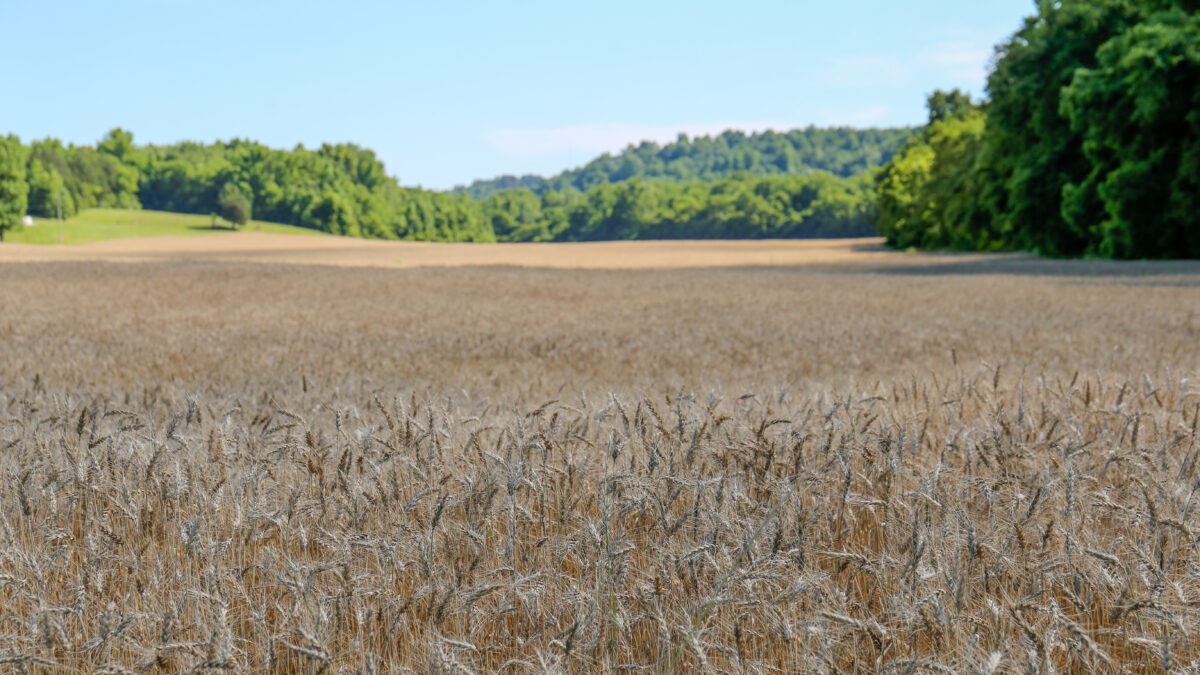Defending Our Right to Farm
Guest Author
Special Contributor to FB.org

photo credit: Tennessee Farm Bureau, Used with Permission
Guest Author
Special Contributor to FB.org
By Amelia Kent
Our right to farm is under attack. I’m not talking about attacks from state laws. Think of this in the context of our social license to farm. We see this threat in varying degrees nationwide, but it’s something farmers need to face head on.
In the past few months, there have been 26 lawsuits filed in North Carolina, naming food companies and the local hog farmers they contract with as defendants in cases where the plaintiffs allege the farms are a legal nuisance to the community and unreasonably interfere with their property. Ironically, the plaintiffs are neighbors who moved into the communities of these already-established hog farms. In three of these suits, the juries ruled against Smithfield, putting the farmers out of business and awarding the neighbors several million dollars.
In North Carolina the focus is on hog farms, but poultry farms are not a far reach and are suspected to be in the crosshairs next.
But the neighbors think they’re suing Smithfield, the integrator. A group of Texas lawyers instigated this cascade of suits, weaving racial injustice in the mix.
Not long ago, an article crossed my screen titled “Why Do Americans Have Such Contempt for the People Who Feed Them?” If that isn’t direct, I don’t know what is! Reuben Navarrette Jr., the author, answered “It’s weather and dust. The more I think about it, the more I come back to weather and dust…Those are the things my parents were so desperate to escape when, as pre-teens in the 1950s, they resolved to one day get a job that let them work indoors.”
This article was published by the Daily Beast and looked at consumers and farmers in the Central Valley of California, an area that produces more than half the fruits and vegetables for the entire country, with surplus product exported around the world. The author also discusses consumer perceptions of farmers relative to labor shortages and food prices. The common complaint from consumers was that farmers don’t pay enough to the workers harvesting their crops. Contrary to perception, the daily wage rate for pickers in this area ranges from $200 to $400 and farmers still have a hard time finding enough workers.
I’ve read several articles in the past few weeks written from an urban perspective about farming, but more specifically about the people who are the farmers, and the decisions we make. While I appreciate that non-rural people are giving considerable thought to the challenges we face daily, it is very much a dynamic of being on the outside of the fishbowl looking in. We face a unique set of career and industry challenges in agriculture. These challenges are numerous, and across many topics. I once heard of “Special Project Expert” as a job title. I joked about that meaning a jack of all trades and for us, I can’t think of a better, single job title!
But here’s the thing. Consumers do not understand most of the challenges and struggles we face on a daily basis. But they have the benefit of an affordable food supply – one that is cheaper than it should be and one for which farmers and/or their crops have been vilified. Whether it is biotechnology supposedly causing cancer, regardless of countless other variables, or the carbon footprint of our livestock and the grain they eat enhancing climate change more so than the human impact (the Atlantic published a story saying as much and prompting people to eat beans instead of beef to meet a carbon reduction goal, and some people believe that!), the perception of agriculture as a whole, and the farmers behind the food, is increasingly negative. This is thanks, in large part, to people being increasingly removed from any farm and ranch experience.
Our social license to our livelihoods – our right to farm – is being commandeered by the children and grandchildren of those who chose to leave farms to work in air-conditioned offices. In North Carolina the focus is on hog farms, but poultry farms are not a far reach and are suspected to be in the crosshairs next. This battle is not limited to North Carolina. These social challenges are obstacles for farmers worldwide. Whether you like it or not, we all must add advocacy to the “Special Project Expert” tool box.
Amelia Kent, a member of AFBF’s current Partners in Advocacy Leadership class and the GO Team, raises cattle and hay with her husband in southeastern Louisiana. You can follow Kent Farms on Facebook, Twitter and Instagram at kentfarms_la. This column was originally published in the August 2018 issue of Louisiana Farm & Ranch.